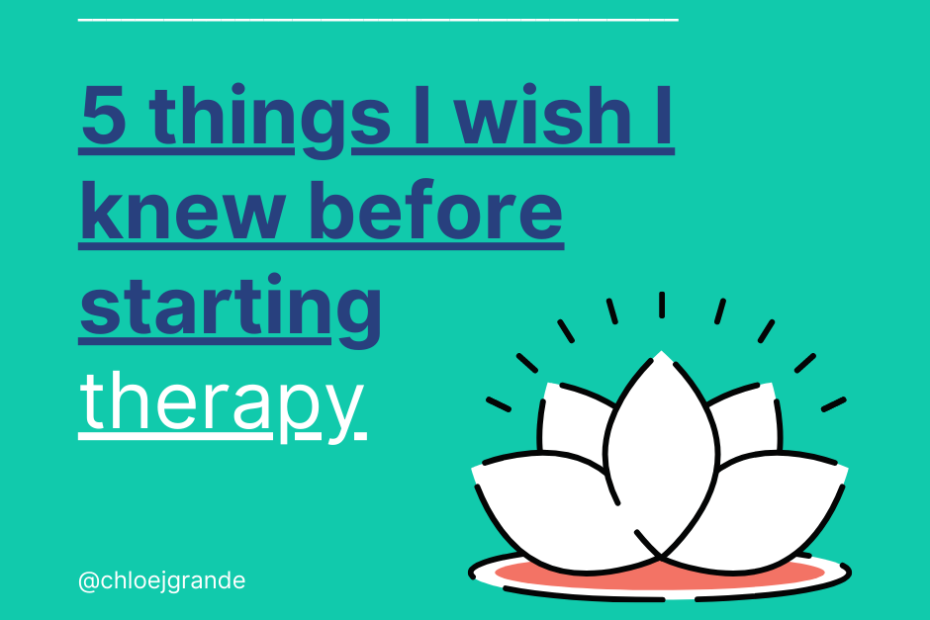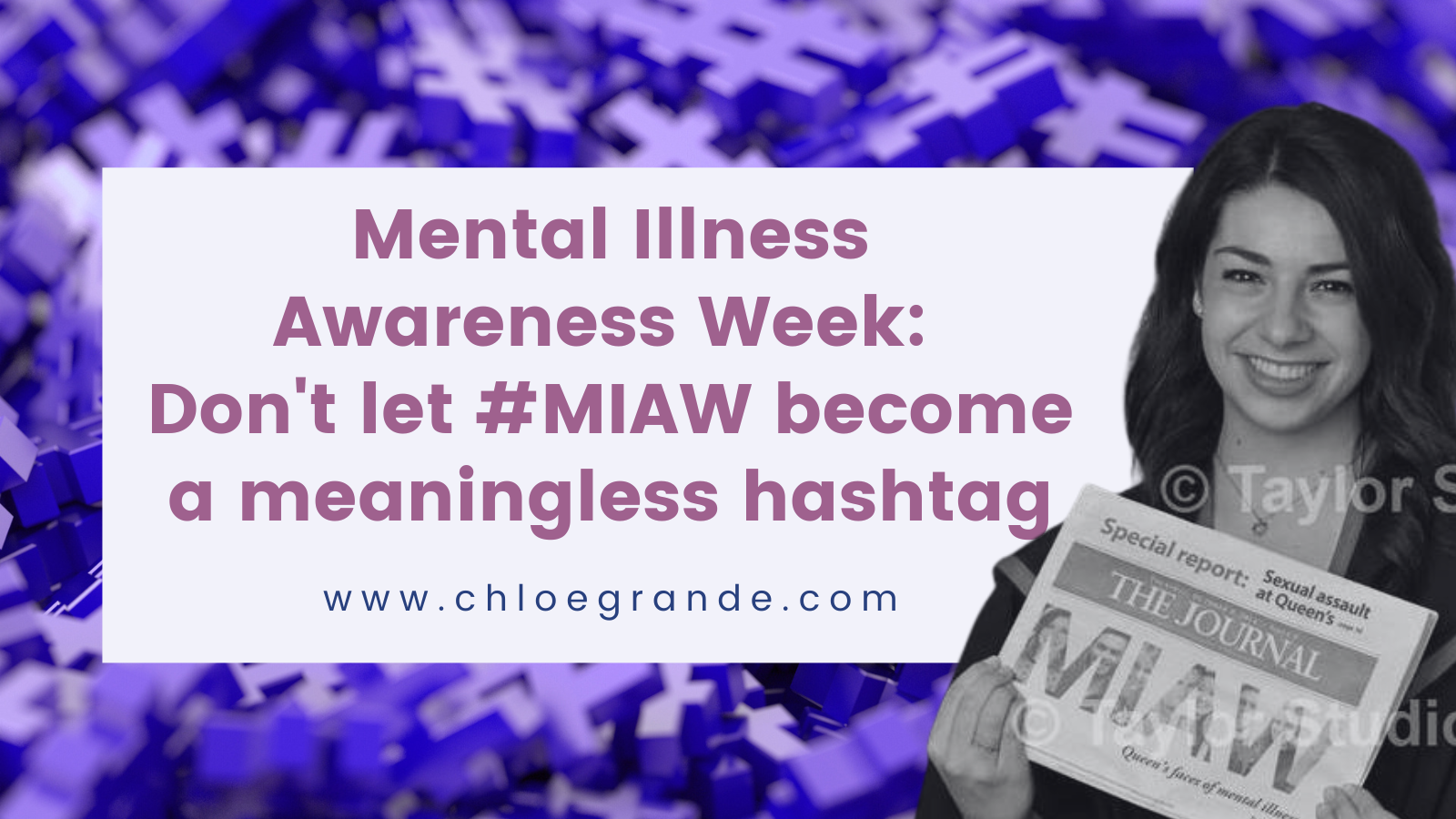Before starting therapy for my eating disorder over ten years ago, I didn’t know a single person my age in therapy. Now, many of my friends talk openly about their therapists (looking at you, Learn With Les!). We’re not ashamed to take care of our mental health.
A lot has changed from high school. But since I didn’t know anyone in therapy when I was a teenager, I also didn’t have any expectations. Here is what I wish someone had told me before going to my first appointment.
- It’s okay to have an agenda. I used to leave it up to the therapist to guide the conversation. If they wanted to make small talk for the first 10 minutes or steer the conversation away from what I wanted to discuss, I’d let them. Then I realized how much this wasted both of our time. Don’t be afraid to assert your needs for the session.
- Tip: Make a list ahead of time with things you want to discuss. Bullet-point is fine, as long as you have something to reference. I’m old-fashioned and use pen and paper, but you could use your phone.
- It’s okay if they aren’t a good fit. Trust me, I’ve seen over 10 therapists in 10 years. Examples of red flags for me: making uncomfortable comments about my dating life, speaking in an aggressive/passive-aggressive tone of voice, and not fully understanding the complexities of an eating disorder and the persistence of symptoms post-recovery.
- Tip: Try to book a phone consultation before picking a therapist. A lot of therapists offer a complimentary 15-minute call, in advance of booking your first appointment. One site that I love using to find local therapists is Psychology Today.
- It’s okay to ask questions or push back. Therapy is a two-way conversation. I’ve been in positions where I felt like a student being lectured or like I was doing all the talking — neither was a good feeling. It’s normal to not always agree with your therapist too. Recently, I’ve been more upfront in our initial sessions about what works well for me.
- Tip: Ask for homework! This helps drill down the lessons learned during your sessions. I’ve always appreciated article and book recommendations. One of my first therapists assigned me an assignment to research the effects of fashion magazines on teenagers. Spoiler alert: it’s not good.
- It’s okay to feel drained afterwards. I thought I would miraculously feel, think and act like a drastically different person after a few sessions. What I didn’t expect was the emotional toll therapy takes on you. During a session, you’re discussing heavy topics you wouldn’t normally share. You’re digging up your past, asking difficult questions and being made to reflect deeply.
- Tip: Be mindful of when you’re booking your sessions. Maybe 8 a.m. before work isn’t the best time to talk about your childhood trauma. Try to give yourself some buffer time before or after a session to prepare and decompress. I also like to journal afterwards!
- It’s okay if you don’t feel like going all the time. I remember dreading sessions because I feared running out of things to talk about. Or that I wasn’t interesting enough to have a therapist. Everyone deserves support and you can’t rely on friends or family to be your therapists. You also don’t need to be at “rock bottom” to book a session.
- Tip: Think of therapy more as preventative care, like taking multivitamins or going outside for a walk. It might not be doable to do on a regular basis, but popping a vitamin C here and there will do more good than harm in the longterm. I find scheduling multiple appointments at once is a good way to keep the momentum going.
I’ll close with a quote from my most recent and favourite therapists, Dr. Lauren: “In order to think differently, we need to act differently.” Therapy has been one of the best ways for me to recognize my own unhelpful thoughts and speak back to the ED voice — I haven’t looked back since seeing my first therapist as a teen. ❤️




Pingback: List of Free Mental Health & Wellness Worksheets | Thriving and Inspiring
I loved this post so much Chloe! I’ve never gone to therapy before, but I love the tips you gave too about leaning in, and being honest and guiding the conversation so it benefits you! You’ve encouraged me to book a call with my cost sharing insurance, they provide free mental health calls! 🙂
So glad this post hit home, Skye! I’ve realized that therapy is meant to be more of a two-way conversation and it’s important to be vocal about my own needs. That’s amazing that you’re able to get free mental health calls. I hope you’re able to put some of the tips into action 🙂
Great job Chloe, you are helping a lot of people. Your honesty and willingness to give of yourself is very much appreciated. Your thoughts also apply to many situations in ones life.
Claude
Claude, I really appreciate the kind words — it makes me so happy to hear that my experiences can be applicable to others.
Thank you for this excellent article. It gives us all a lot to think of and to allow ourselves to ask for what we need.
I appreciate the kind words, Fariba! Absolutely, we need to express our needs to get the support we’re looking for — that feedback loop is so important.
Great tips, Chloë !! Life never stops giving us lessons …and that’s excellent for our continued growth .
Thank you! You’re right, therapy is a chance to keep growing and learning ❤️?